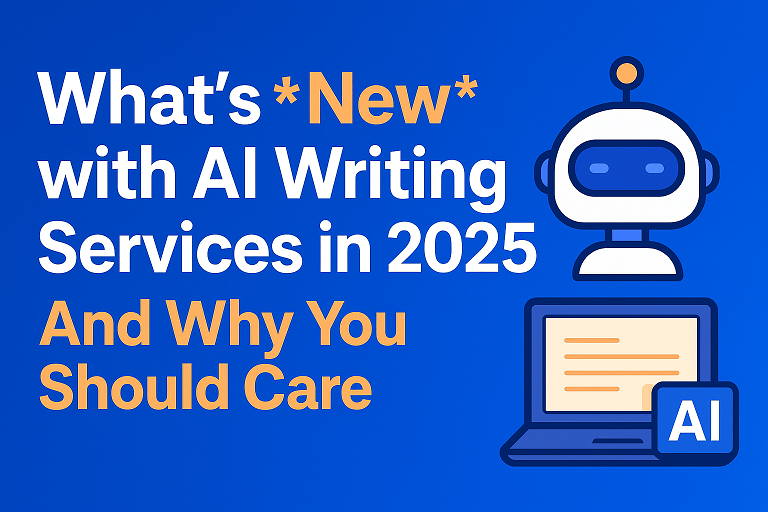The impact of AI on Canada’s economy, government initiatives, and companies in the AI sector has been significant, and it continues to grow rapidly. Here’s a breakdown of the key areas of influence:
1. Impact on the Local Economy
AI is playing a transformative role in Canada’s economy, particularly in areas such as technology, healthcare, and manufacturing. According to the Council of Canadian Innovators, AI is expected to contribute $15.7 trillion to the global economy by 2030, and Canada is positioning itself as a leader in this space. Key areas of economic impact include:
Job Creation and Transformation: While there are concerns about job displacement due to automation, AI is also driving the creation of new jobs in AI research, machine learning engineering, data analysis, and AI ethics. Sectors like finance, healthcare, and manufacturing are heavily investing in AI technologies, which is leading to both new roles and the transformation of existing ones.
Economic Growth and Innovation: AI innovations are enabling Canadian companies to increase efficiency, productivity, and competitiveness on a global scale. Canada’s economy is benefiting from AI’s ability to automate complex processes, reduce costs, and foster new industries. For example, Toronto has emerged as a global AI hub, fostering startups and attracting investments.
Startups and Entrepreneurship: Canada’s AI ecosystem, centered in cities like Montreal, Toronto, and Vancouver, has seen rapid growth. Programs like the Creative Destruction Lab and incubators like Element AI (recently acquired by ServiceNow) are helping AI startups to scale and attract venture capital, boosting the overall tech landscape.
2. Government AI Initiatives
The Canadian government has been proactive in promoting AI research and responsible use. Some of the key initiatives include:
Pan-Canadian AI Strategy: In 2017, Canada became the first country in the world to launch a national AI strategy, investing $125 million into AI research. The strategy focuses on developing three major AI hubs (Toronto, Montreal, and Edmonton) and supporting Canada’s reputation as a leader in ethical AI research. This initiative is driven by CIFAR (Canadian Institute for Advanced Research) and aims to attract and retain top AI talent while fostering collaboration between academia and industry.
AI for Public Good: The Canadian government has shown interest in using AI for public good, particularly in sectors like healthcare, agriculture, and climate change. For example, AI technologies are being integrated into Canada’s healthcare system to improve diagnostics and personalized treatments. Moreover, AI-driven projects are helping Canada meet its climate goals by optimizing energy efficiency and reducing carbon emissions.
Ethical AI and Governance: The government has been working on establishing guidelines and ethical standards for AI, particularly regarding privacy and data use. For instance, Algorithmic Impact Assessments (AIA) are required for any AI system used within the government to ensure transparency and accountability. Canada is also a founding member of the Global Partnership on AI (GPAI), which aims to develop international cooperation on AI ethics, data governance, and responsible use of AI technologies.
3. Canadian Companies in the AI Sector
Several Canadian companies and organizations are at the forefront of AI innovation. These companies range from startups to major players in the global AI market:
Element AI: Founded in Montreal, Element AI was a pioneer in AI research and development. It was acquired by ServiceNow in 2020, reflecting Canada’s prominence in the AI space. The company focused on building AI solutions for enterprises, helping them integrate AI into their workflows.
BlackBerry QNX: Originally known for its mobile devices, BlackBerry has shifted its focus to cybersecurity and AI-powered solutions for industries like autonomous vehicles. BlackBerry QNX, based in Ontario, is a leader in developing software for connected and autonomous cars, an area that heavily relies on AI technologies.
BlueDot: A Toronto-based AI company that uses machine learning to track the spread of infectious diseases. BlueDot gained international attention for detecting the outbreak of COVID-19 in Wuhan before it was widely reported. This showcases the power of AI in real-time data analysis and its potential in healthcare.
DeepMind: Although headquartered in the UK, DeepMind (owned by Alphabet) has a research lab in Edmonton, Alberta. This lab works closely with Canadian universities and research institutions, further strengthening Canada’s reputation as a leader in AI research.
Conclusion
AI is profoundly impacting Canada’s local economy by driving innovation, creating jobs, and fostering global competitiveness in industries like technology, healthcare, and manufacturing. The Canadian government has been a leader in supporting ethical AI development through initiatives like the Pan-Canadian AI Strategy and investments in AI for public good. Canadian companies and startups are also making their mark in the global AI landscape, reinforcing Canada’s position as a major player in the field.
As AI continues to evolve, Canada’s proactive approach to regulation, ethics, and innovation will be key to its ongoing leadership in the global AI economy.
Sources:
CIFAR, “Pan-Canadian AI Strategy”
Government of Canada, “Algorithmic Impact Assessments”
Brookfield Institute, “The Future of AI in Canada’s Economy”
Council of Canadian Innovators, “AI and Canada’s Economic Growth”




